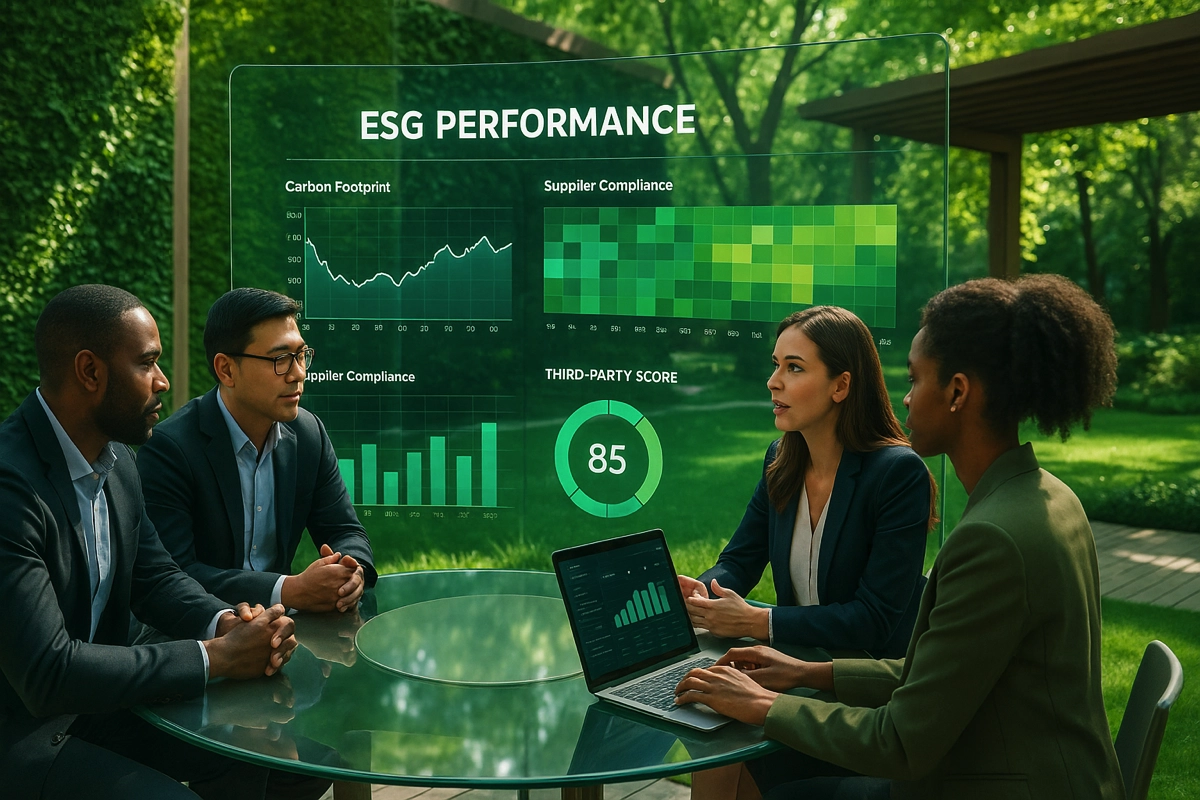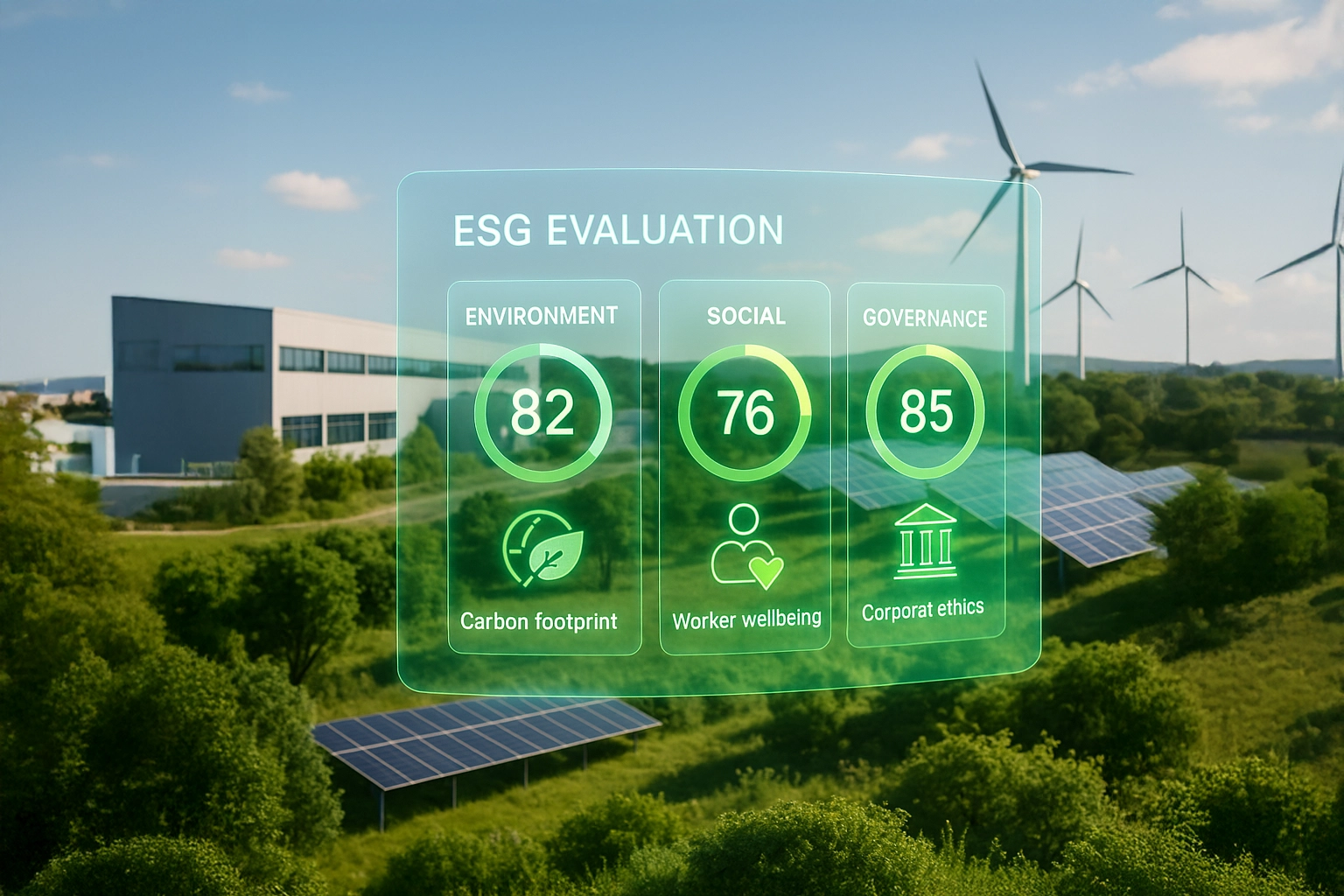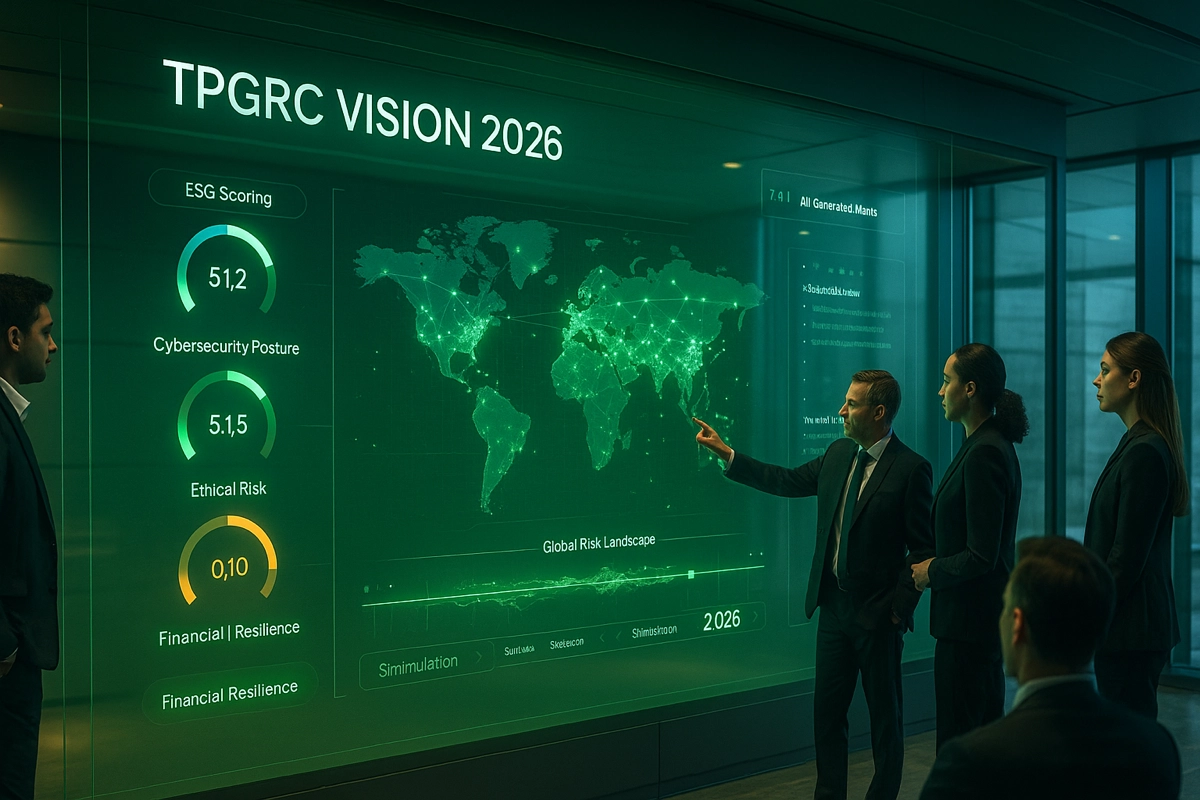Pooled Due Diligence: A Strategic Lever for Third-Party Risk Management

In an increasingly demanding economic environment, companies are turning to pooled due diligence processes to optimize third-party governance and strengthen their operational resilience. This collaborative approach involves sharing the efforts and resources related to third-party partner assessments, particularly critical suppliers. By centralizing these tasks, organizations—both within the same group and even among competitors—can increase efficiency while reducing the costs associated with third-party risk management.
The shift from TPRM (Third Party Risk Management) to TPGRC (Third Party Governance & Risk Compliance) has become a necessity in light of evolving European regulatory frameworks, notably with the implementation of directives such as DORA, NIS 2, and CSRD. This strategic transition aims to ensure European data sovereignty while strengthening supply chain resilience.
The importance of this approach is highlighted by a recent SecurityScorecard study, which reveals that 98% of organizations have a relationship with a third party that has suffered a data breach, demonstrating the urgency of adopting more robust and collaborative third-party governance strategies.
Understanding Pooled Due Diligence
Pooled due diligence is revolutionizing the traditional approach to collaborative assessment of third-party partners. This concept is based on sharing information and resources among multiple organizations, enabling optimized investigative processes while strengthening operational resilience.
According to a PwC study, companies could save up to $88 million by pooling KYC (Know Your Customer) procedures. This approach not only reduces costs but also significantly improves operational efficiency by centralizing data in a single reference repository.
It aligns perfectly with the shift from TPRM to TPGRC (Third Party Governance & Risk Compliance), a strategic evolution detailed in The Challenges of TPRM and TPGRC.
Challenges of Traditional Due Diligence
Conventional due diligence methods face several major obstacles:
- Fragmented data management – the multiplicity of platforms often leads to disorganized essential information, increasing non-compliance risks.
- Time-consuming manual reviews – traditional processes involving heavy manual work reduce efficiency and consume significant resources.
- High costs – according to another PwC study, financial institutions have seen a significant increase in compliance costs related to anti-money laundering and counter-terrorism financing (AML/CTF), with 65% reporting higher spending over the past 24 months. For banks, the increase is particularly marked, with 40% reporting cost hikes above 30%, underlining the crucial importance of optimizing these processes.
Pooled due diligence offers concrete solutions to these challenges by standardizing investigative processes and promoting the sharing of best practices among partners. This collaborative approach emerges as a strategic response to growing third-party governance and regulatory compliance demands.
Benefits of Pooling for Large Groups
For large enterprises, pooled due diligence represents more than just operational optimization—it’s a true third-party governance lever that harnesses the power of the network. This collaborative approach fosters the creation of common industry standards, establishing a single reference framework for all stakeholders. As noted in an Utopreneurs study, “by pooling resources, member companies find unique opportunities to develop win-win solutions and can maximize resources, innovate faster, and address their sector’s challenges.”
By integrating pooling into their overall strategy, large groups can achieve significant collaborative optimization. According to the French Anti-Corruption Agency (AFA), organizations adopting a pooled approach reduce third-party evaluation costs by up to 40% while improving the quality of collected data.
The adoption of pooled supplier due diligence is thus becoming a strategic necessity in modern third-party risk management.
In the construction sector, pooling resources is especially relevant for managing multi-tier subcontractors. According to a PRST Pays de la Loire study, resource-sharing on worksites ensures “compliant, complete, adapted equipment, properly assembled, in sufficient quantity, throughout the project duration.” This collaborative approach not only improves working conditions and the quality of the work but also reduces costs and optimizes project timelines.
Strengthening Organizational Resilience
One of the major benefits of pooling is strengthening operational resilience. By sharing knowledge and experience in third-party governance, companies develop a deeper understanding of the challenges they face.
According to ANSSI, “pooling assessments significantly increases the ability to detect weak signals and anticipate emerging risks in the digital supply chain.” This resource sharing facilitates contextualized multi-source alerts, improving agility and responsiveness in times of crisis.
In the public sector, local authorities have particularly benefited from this approach. A social housing consortium managing over 85,000 units implemented a pooled supplier evaluation system, reducing third-party-related incidents by 30% while ensuring better GDPR compliance.
Want to optimize your third-party governance?
Discover how Aprovall360 transforms the collaborative assessment of your third-party partners.
Implementation and Tools for Pooling
Setting up a pooling structure for due diligence requires an integrated platform and a rigorous methodology. Current technological solutions make it easier to collect and process the information required during collaborative assessments. These tools automatically integrate various environmental, social, governance, financial, and regulatory compliance criteria, making the process smoother and less prone to human error.
According to a CGAP study, “the private and public sectors are increasingly leveraging new technologies to implement collaborative approaches that allow financial service providers to meet customer due diligence requirements.” Pooling resources significantly reduces costs while increasing compliance effectiveness.
In construction, implementing customized smart workflows has optimized the management of multi-tier subcontractors. A case study by Design-Mat documents how pooling handling resources on the Effervescence project in Marseille by Kaufman & Broad not only generated significant savings but also “ensured better long-term working conditions for building this shopping center and over 200 housing units.” This approach proved so effective that the company now plans “to incorporate pooling into future projects from the design stage with architects.”
Creating an Effective Collaboration Framework
The success of pooling largely depends on the quality of the collaborative governance framework established among stakeholders. According to Ksapa, nine fundamental principles ensure effective stakeholder collaboration, including “a shared vision and goals, mutual benefits, trust, and transparency.”
To ensure optimal functioning, it is necessary to establish a clear collaborative model defining the roles and expectations of each participant. These agreements must be built on mutual trust to effectively support common objectives. Setting up an evolving knowledge base also allows organizations to capitalize on past experiences and continuously improve evaluation processes.
In the distribution sector, major players have developed a collaboration framework for evaluating international marketplaces. According to a FasterCapital study, this collaborative approach optimizes channel management and improves sales data analysis, leading to better decision-making and identification of growth opportunities. Such partnerships not only boost brand visibility but also establish mutually beneficial long-term relationships.
Shift Toward Digitalizing Processes
Digital transformation is revolutionizing how companies manage relationships with third-party partners. Integrating document AI into due diligence processes allows rapid analysis of large volumes of documents, identification of potential risks, and optimization of strategic decisions. This technological evolution facilitates the transition from one-off evaluations to continuous monitoring of third-party partners.
According to Deloitte, “without proactive and continuous monitoring of third-party risks, organizations become increasingly vulnerable to risks such as supply chain disruptions, reputational damage, and cyberattacks.” The shift to digital tools allows risks to be anticipated before they become problematic.
In distribution, digitalizing third-party evaluation processes has transformed the management of marketplaces and e-commerce platforms. According to Banking Frontiers, “digital tools allow companies to automate processes, streamline workflows, and centralize compliance information,” thus improving operational efficiency while reducing human errors.
Impact on Competitiveness
Adopting a digitized approach to collaborative evaluations of third-party partners is now a significant competitive advantage. Companies that integrate these technologies into their third-party partner networks benefit from increased agility and a greater ability to adapt to market changes.
According to Roland Berger, “companies that act early to develop and implement their own digitalization strategy will be the winners.” This transformation not only optimizes costs but also strengthens collaboration with suppliers and improves operational efficiency.
In industry, digitalizing due diligence processes has significantly enhanced companies’ operational resilience and innovation capacity. This approach also promotes the integration of sustainability criteria into partner evaluations, meeting the growing demands of consumers and regulators for social and environmental responsibility.
Toward Collaborative and Sovereign Third-Party Governance
Pooled due diligence is emerging as an essential approach for organizations seeking to optimize their third-party governance while strengthening their operational resilience. By combining resource sharing, process standardization, and digitalization, this strategy effectively addresses the growing challenges of European regulatory compliance.
The benefits are broad and span priority sectors: cost and time savings for construction, enhanced compliance for the public sector, supply chain security for industry, and marketplace optimization for retail.
The transition from TPRM to TPGRC, supported by integrated platforms and collaborative assessments, allows organizations to turn a regulatory obligation into a competitive advantage. This evolution not only ensures compliance with regulatory requirements (DORA, NIS 2, CSRD) but also safeguards European data sovereignty—a major strategic issue in today’s digital economy.
Ultimately, pooled due diligence is not just process optimization; it is a true transformation of the relationship with third-party partners, fostering a more resilient, transparent, and collaborative ecosystem.
Ready to unlock the full potential of your third-party relationships?
These articles might interest you
-
 18 April 2025ESG Strategy for the Supply Chain: Assessment and Management MethodsSolutionsThe ESG strategy (Environment, Social, Governance) has become a fundamental pillar of corporate operational resilience. According to the 2025 Supply Chain ESG Risk Outlook by LRQA, over half of sourcing countries are now classified as high or extreme ESG risk, challenging the common perception that Western markets are inherently safer. This new reality demands a […]
18 April 2025ESG Strategy for the Supply Chain: Assessment and Management MethodsSolutionsThe ESG strategy (Environment, Social, Governance) has become a fundamental pillar of corporate operational resilience. According to the 2025 Supply Chain ESG Risk Outlook by LRQA, over half of sourcing countries are now classified as high or extreme ESG risk, challenging the common perception that Western markets are inherently safer. This new reality demands a […]Read more
-
 03 February 2025TPRM vs Traditional Risk Management: A Critical Comparison for Modern BusinessesSolutionsIn a market valued at $8.3 billion in 2024 and projected to reach $18.7 billion by 2030, third-party governance is becoming a strategic pillar for organizations. In response to the rapidly evolving business world, Third Party Risk Management (TPRM) is profoundly transforming traditional risk management practices. The traditional approach, focused on internal processes, is no longer sufficient […]
03 February 2025TPRM vs Traditional Risk Management: A Critical Comparison for Modern BusinessesSolutionsIn a market valued at $8.3 billion in 2024 and projected to reach $18.7 billion by 2030, third-party governance is becoming a strategic pillar for organizations. In response to the rapidly evolving business world, Third Party Risk Management (TPRM) is profoundly transforming traditional risk management practices. The traditional approach, focused on internal processes, is no longer sufficient […]Read more
-
 14 March 2025Integrating ESG Criteria into Supplier EvaluationSolutionsIntegrating environmental, social, and governance (ESG) criteria into the evaluation of third-party partners has become essential for companies seeking to strengthen their operational resilience and promote sustainable development. These criteria make it possible to analyze not only economic performance but also the environmental and social impact of business relationships. According to a recent McKinsey study, […]
14 March 2025Integrating ESG Criteria into Supplier EvaluationSolutionsIntegrating environmental, social, and governance (ESG) criteria into the evaluation of third-party partners has become essential for companies seeking to strengthen their operational resilience and promote sustainable development. These criteria make it possible to analyze not only economic performance but also the environmental and social impact of business relationships. According to a recent McKinsey study, […]Read more
-
 30 September 2025TPRM Visions 2026: Expanding the Evaluation Spectrum to Anticipate Emerging RisksSolutions2026: A Turning Point in Third-Party Evaluation Third-party management is undergoing a major transformation. Until now, companies have focused their evaluations on the most immediate risks: supplier financial stability, ethical compliance, and fraud prevention related to banking information. These areas remain critical. But by 2026, TPRM (Third Party Risk Management and Compliance) will broaden its scope to […]
30 September 2025TPRM Visions 2026: Expanding the Evaluation Spectrum to Anticipate Emerging RisksSolutions2026: A Turning Point in Third-Party Evaluation Third-party management is undergoing a major transformation. Until now, companies have focused their evaluations on the most immediate risks: supplier financial stability, ethical compliance, and fraud prevention related to banking information. These areas remain critical. But by 2026, TPRM (Third Party Risk Management and Compliance) will broaden its scope to […]Read more
